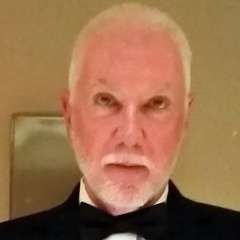For Stephen Mulligan, the Atlanta Symphony Orchestra’s assistant conductor, metaphoric lightning has struck twice this year. About a month ago he had to step in for ailing music director Robert Spano, and this week he had to take up the baton again as a replacement for the similarly indisposed guest conductor, Henrik Nanasi. In the latter instance, Mulligan conducted the already scheduled program; this week, the ASO altered the program to accommodate the young assistant.
Mulligan led a strong performance of Tchaikovsky’s Romeo and Juliet Fantasy Overture, which replaced the originally scheduled Dances of Galanta. The Overture begins with a chorale-like introduction in the woodwinds, taken here with a slightly fast tempo, followed by a slightly ragged entry by the violins. Subsequently, however, Mulligan carefully shaped the music by maximizing its dynamic contrasts to increase its dramatic impact, and by introducing some carefully placed ritardandos where the music transitions, for example, from sword fighting to the lovers’ balcony embrace. The famous love theme was played sweetly by the ASO winds and strings. This was a nicely transparent performance, where every detail of the music could be heard. Surprisingly that transparency was both a strength and a weakness because it unmasked some of the composer’s compositional weaknesses, for example, his sometimes awkward use of horns or woodwinds to provide dramatic accents. Similarly, the composer’s clunky passages that stitch together the work’s four dramatic sections was apparent. In spite of this, the overall performance was quite dramatic and both the ASO and Mulligan provided quite an attention-grabbing concert opening.
The 27-year old Uzbek-born pianist Behzod Abduraimov joined the ASO in a performance of Prokofiev’s Third Piano Concerto, the only piece that had been programmed prior to Mr Mulligan’s stepping in. The Third is likely the most well-known and popular of the composer’s five piano concertos and, in contrast to the Romantic piano concerto repertoire, the orchestra and piano are equal partners in Prokofiev’s music. The concerto makes great technical demands of the soloist, especially in requiring repeated percussive piano effects. Abduraimov has built a portion of his rapidly rising international reputation on both his recorded and numerous live performances of this concerto. While he plays with great muscularity, he is not overly animated at the keyboard, save for an occasional launch from the bench when he needs to add some extra energy.
Mulligan’s tempi during the first movement (Andante; Allegro) were brisk and exciting, and, at times, the orchestra became a bit loud, drowning out the piano, slightly unbalancing their equal partnership. But during the ballet-inspired theme and variations of the slow second movement, the balance was restored and Prokofiev’s lyrical strengths became apparent. In the second variation, the piano soloist must perform some spectacular hand-crossings, which looked deceptively simple when played by a master technician like Abduraimov. In the second movement, Prokofiev introduces castanets and a bass drum, played with elegance and restraint by the percussion section. The Allegro third movement is much like a long crescendo, and in its midpoint, introduces a lovely, hummable melody, played beautifully. It is also one of the few places in the piano literature where the pianist must play two keys with one finger, which the soloist did perfectly. Based on his performance here, Abduraimov deserves all of the praise he has received for his approach to this concerto.
The final work was Strauss’ 1889 tone poem, Death and Transfiguration. The four parts of the work describe a dying man’s reflections on life, its struggles, and his ultimate transformation upon death. The music is magnificent, chilling, inspirational and personal. Mulligan and the ASO seemed to revel in its gorgeous sound and played it to its dramatic fullness. The brass section was quite remarkable in the triumphant finale. This was a grand performance that seemed to be a good fit for Mulligan’s sensibilities, rising to the challenge to give an exemplary performance.


